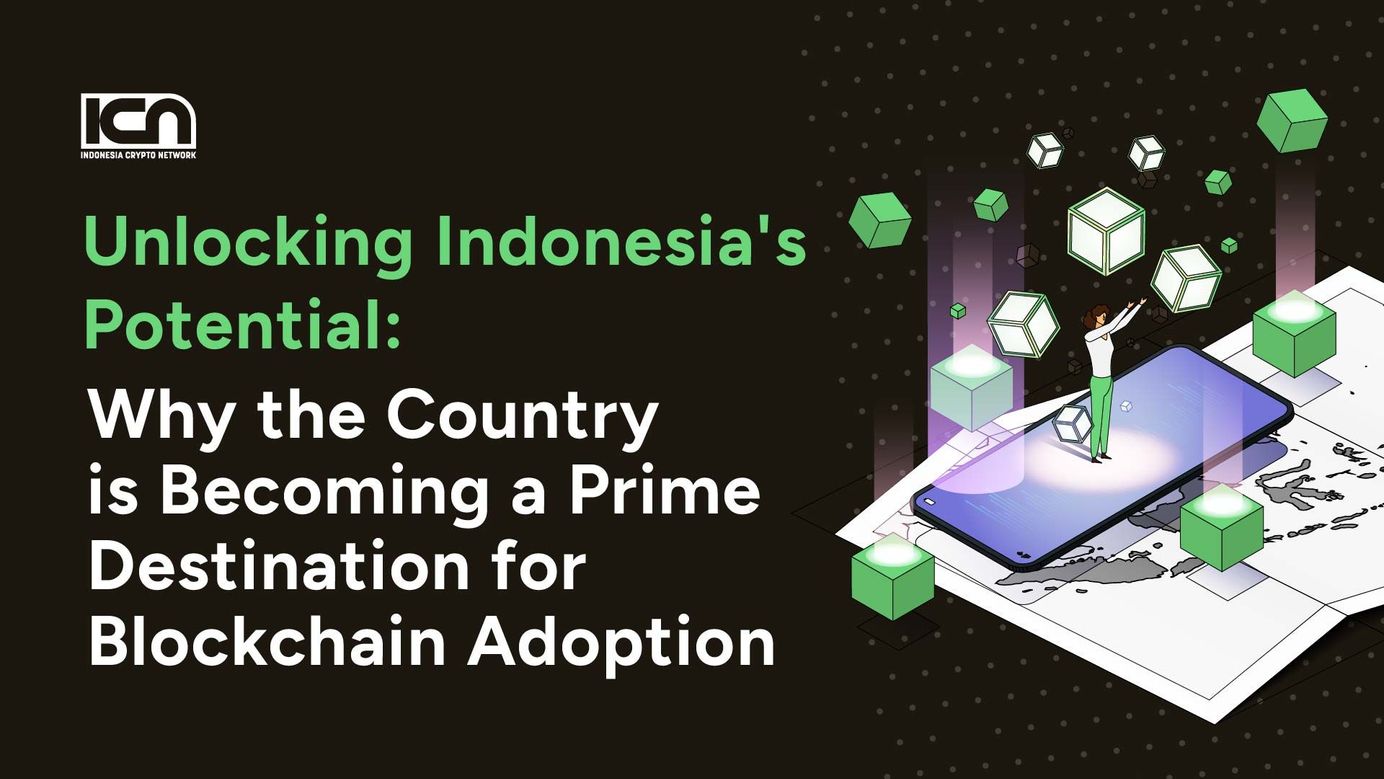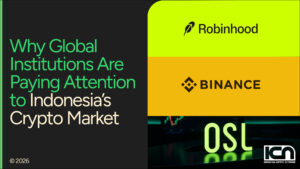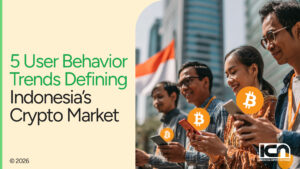Indonesia is the largest digital economy in Southeast Asia, valued at over $77 billion in 2022 and projected to reach over $130 billion by 2025. While many challenges remain, the overall trend bodes well for the increasing growth of Indonesia’s digital economy, especially considering new disruptors such as cryptocurrency.
Below, we’ll outline some interesting phenomena that make Indonesia the perfect country for blockchain adoption.
The country is decentralized and prone to corruption
Indonesia is an archipelago spread over 17,000 islands grouped into 34 provinces. Since 2001, decentralization has been a major focus of the nation’s government in order to effectively manage its vast territory.
As part of this initiative, Indonesia delegates large amounts of public spending and policymaking power to regional governments. In 2021, Indonesia allocated about Rp795.5 trillion (about $55,5 billion) of its Rp2,750 trillion (about $191 billion) national budget to regional and rural spending.
However, corruption is still a major issue plaguing Indonesia, costing the country up to Rp33,6 trillion (about $2,15 billion) in the first half of 2022. As of 2021, Indonesia scored 38 out of 100 in Transparency International’s Corruption Perceptions Index. The lack of transparency and conflicting responsibilities among its vast decentralized government are major contributing factors.
One possible solution is the adoption of blockchain to introduce a more transparent and public record regarding government spending. This makes Indonesia a prime testing ground for the adoption of web3 and blockchain record-keeping. With transactions recorded into a unique hash, the potential for embezzlement and laundering would be vastly reduced.
Many Indonesians are still unbanked
A large portion of Indonesia’s population – about 51% or approximately 181 million people – still don’t have bank accounts. As mentioned above, the country is spread over a vast area with varying levels of infrastructure, which makes it more difficult for banking institutions to provide their full range of services across the country. Consequently, many Indonesians, especially in remote regions, find it harder to access banking services.
However, smartphone penetration is doing better. Diverse retailers and cheaper product options mean that over 82% of Indonesians will have smartphones by 2026. This means that products which aim to provide financial inclusion through technology – such as blockchain and crypto – have a high chance of getting traction.
Crypto traders are growing in numbers
Until August 2022, Commodity Futures Trading Regulatory Agency (CoFTRA) of the Ministry of Trade stated that approximately 16.3 million Indonesians have bought or sold crypto. Comparatively, the Indonesian Stock Exchange reported that the number of traders had reached 4 million by June of the same year.
Keep in mind that Indonesia has reached this number during the very early stages of crypto traction in the country, with 25 registered exchanges. As crypto trading becomes more mainstream, this number will only increase, and companies would be smart to take advantage of this wave.
The Leading cryptocurrency marketing and PR agency in Indonesia, Indonesia Crypto Network (ICN) continue to support this push towards more mainstream growth directly through their channels and growing user base of over 500K crypto enthusiasts across the country.
There’s an active independent artist community
Indonesia hosts a vibrant community of artists, musicians, and content creators. These creators are also embracing ways to earn profits and gain publicity online. More local platforms are being launched to allow artists to publish their work and earn money in exclusive channels such as Trakteer and Karyakarsa, which hosts over 40 thousand creators and 300 thousand users in its ecosystem as of November 2021.
The story of Ghozali, an Indonesian computer science student who made over $1 million selling NFTs, has brought NFTs into the limelight in the country. It makes sense to theorize that the local creator community will soon leverage NFT technology to spread their work domestically and internationally – you only need to spread awareness about the technical know-how.
Financial technology is already dominant
As of 2022, there are 13 Indonesian-born startups that have reached unicorn status. Half of these unicorns either deal primarily or heavily invest in financial technology. These companies are:
- Gojek, a ride-hailing and services platform that launched its own proprietary e-wallet, GoPay, to use in its ecosystem.
- OVO, a digital payment service and Indonesia’s first financial technology unicorn.
- Xendit, a payment gateway service.
- Ajaib, an online investment platform.
The massive amounts of traction that these companies have gained, coupled with the faith that investors have in them to have amassed so much funding, speaks well about how Indonesians perceive digital currencies. About 9 out of 10 internet users in Indonesia use digital wallets to shop and make payments, which is a good sign for companies planning to boost cryptocurrencies.
When is the right time to enter?
The conditions are set to start exploring Indonesia’s cryptocurrency market now.
Agencies like Indonesia Crypto Network (ICN) can help your global platform connect with local sensibilities to engage and activate Indonesian users.
The recent boom in unicorn status highlights how fruitful Indonesia specific approach can be given that the right conditions are already in place.
That number will only increase with the solutions for web3 and blockchain waiting to be implemented to tackle Indonesia’s unique challenges.




